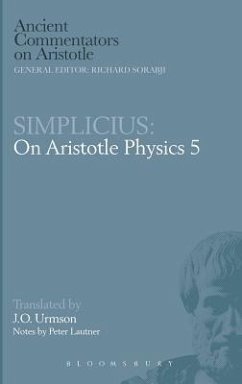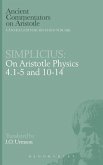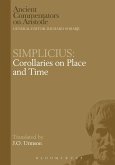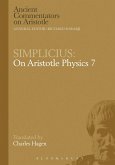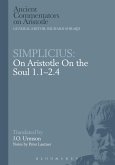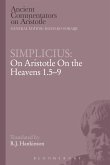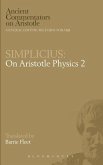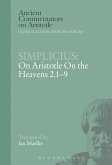Simplicius, the greatest surviving ancient authority on Aristotle's Physics , lived in the sixth century A. D. He produced detailed commentaries on several of Aristotle's works. Those on the Physics, which alone come to over 1,300 pages in the original Greek, preserve a centuries-old tradition of ancient scholarship on Aristotle. In Physics Book 5 Aristotle lays down some of the principles of his dynamics and theory of change. What does not count as change: change of relation? The flux of time? There is no change of change, yet acceleration is recognised. Aristotle defines 'continuous', 'contact' and 'next', and uses these definitions in discussing when we can claim that the same change or event is still going on. This volume is complemented by David Konstan's translation of Simplicius' commentary on Physics Book 6, which has already appeared in this series. It is Book 6 that gives spatial application to the terms defined in Book 5, and uses them to mount a celebrated attack on atomism. Simplicius' commentaries enrich our understanding of the Physics and of its interpretation in the ancient world.

